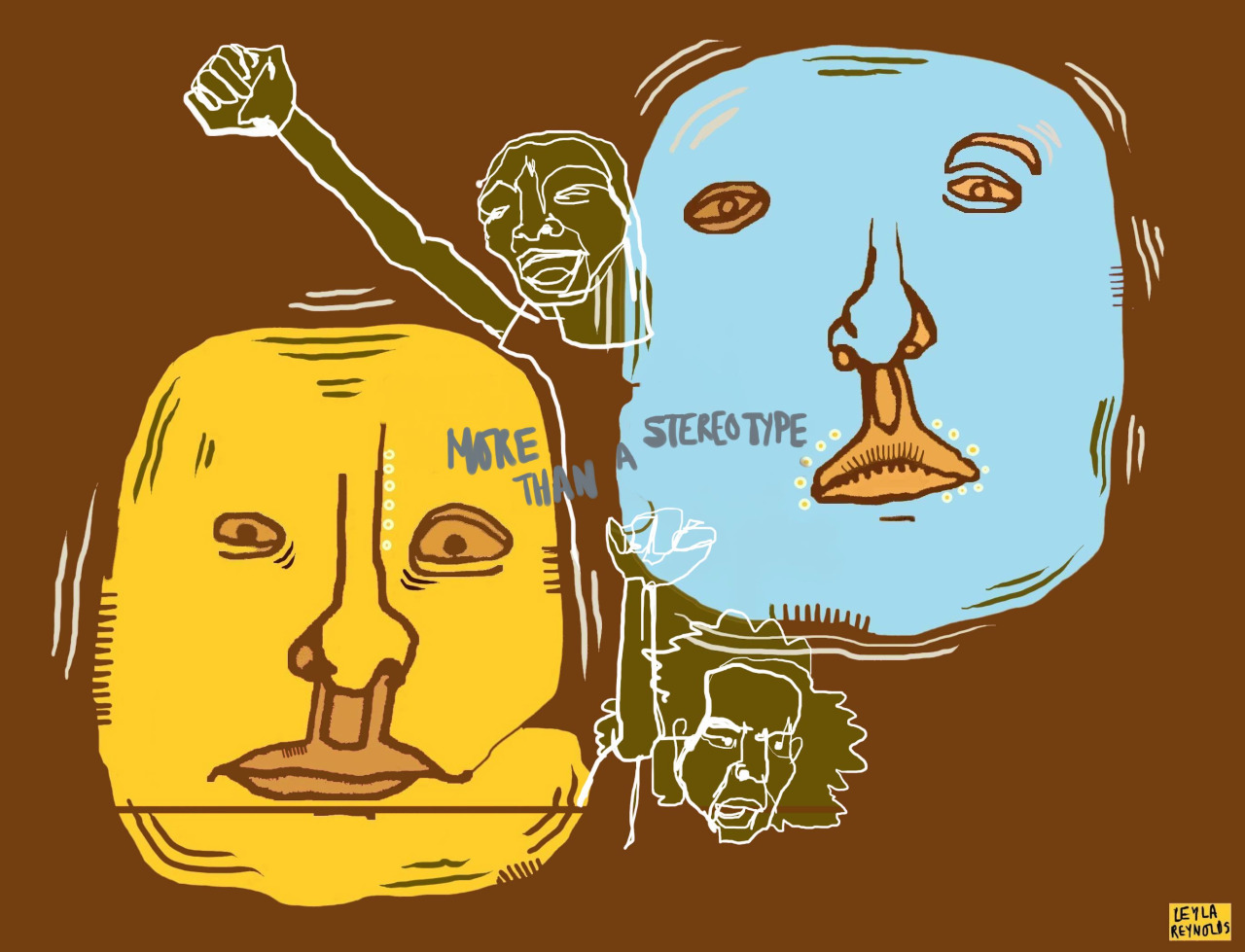
I’ve witnessed friends of mine breathe audible sighs of relief when they can speak the magic words , “I want to be a lawyer,” to their friends’ prying parents. For me, regardless of how genuine my dream, it’s often met with a knowing smile and a question they seem to think they already know the answer to: “is one of your parents a lawyer?”
This may also be followed by an anecdote about another vaguely brown-skinned girl they know, who is vaguely my age, who wanted to be an artist (vague about which kind) but ended up pursuing a vaguely professional field of work, because her parents were (hushed tones, here) traditional.
Time and time again, generation after generation, brown women are folded and flattened into a narrow set of moulds. Moulds built out of toxic misconceptions about our cultures, our backgrounds and our upbringings. At a very young age, I learned how to navigate spaces with my arms crossed in self-defence. I am my own person, I wanted to scream. I’m brown, but I’m me first. Throw in being a Muslim too and my brown womanhood is a hotbed for racially charged assumptions.
The assumptions I’m currently manoeuvring as I enter the second half of my undergrad are these: that my upbringing was sheltered, that my familial structure is patriarchal and oppressive, and that as a result, I am not an agent in the decisions, career-wise or vocational, that I make for my life.
During the first week of classes this year, I struck up a conversation with a girl in my Modernist Literature class. She asked me what my background was and I told her that my parents were Pakistani, in which she seemed genuinely interested. She then asked me if my major was English, and when I said it was, her face carried a look of mild shock. She asked me how my parents felt about that.
When I said they were fine with it, and that I actually was preparing to write my LSAT this year and had dreams of becoming a lawyer, she smiled.
“Oh, they must love that, then.”
Her comments still make me wonder whether my white peers are asked whether their parents coerced them into pursuing medicine or, on the other hand, whether their passion for the creative arts is a thinly veiled attempt to rebel against their culture’s oppressiveness. I’ve never heard that and I probably shouldn’t hold my breath.
While I’m not excusing the environments within some of our brown communities that do hinder girls’ abilities to pursue their true selves, comments like hers often aren’t fuelled by a true willingness to critique misogynist spaces. Instead, they’re just excuses to invalidate the choices that brown women make and reasons for which we make them.
I love English. I love law. I’m doing both because I’ve chosen it for myself. I’m doing both because I would be good at it.
One of my closest friends happens to be in several of my classes this year. Between the two of us are several parallels; we are both English majors, both wish to pursue law and are both brown girls.
“I think that people just assume that I didn’t arrive at my choice because it was what I wanted but, rather, because my parents played some huge, dictating role in the decision making process,” she tells me.“I just want people to stop stripping me of my agency and assuming that I can’t make my own decisions , because that’s a really played-out narrative.”
The environment of academia isn’t foreign to casual and continuous questions about majors and future plans and career goals. It might just be the symptom of the space. But when people continuously arrive at the notion that I’ve been stripped of any governance of my life because of a community obsessed with controlling its daughters, it’s a symptom of something else entirely.
My parents left Pakistan so I, and my sisters after me, could be successful. As immigrants, they’ve learned the hard way that the financial and emotional cost of living as a racialised body in a Western country is exorbitant. They wish me accessibility and ease in a world that was inaccessible and uneasy for them.
The idea that immigrant parents want their children to pursue professional careers isn’t intrinsically bred from a desire to squash their children’s dreams. That’s a sweeping generalisation that, again, lends weight to the stereotype of brown communities as inherently oppressive.
As people who have experienced firsthand the difficulty that comes with being racialised in a system stacked against you, my parents want to see me grow up to be profitable. More would come from critiquing the culture that undermines the qualifications and intelligence of Asian immigrants than will ever come from questioning the people who are trying their best to stay afloat within it.
As brown women, our trajectories to “success” are riddled with obstacles. Our everyday interactions are often funhouse mirrors—our identities are distorted to fit false ideas of who people think we are and should be. We work twice, if not thrice, as hard simply to get to the starting point of many of our white peers.
For me, certainty in my future goals and dreams is the thing I hold to be true, the thing I cling to when I’m having a hard time. Because it’s mine and mine alone. It’s been planted and watered and cultivated by me—perhaps with inspiration and influence by parents who’ve seen what it means to fall short of success and who want to see my hold it in full—but ultimately it belongs to me.
The last thing we need is for this to be taken from us too.









